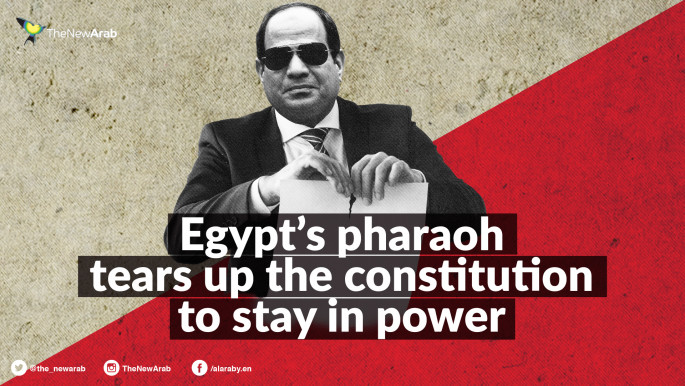Egyptian parliament begins session to vote on Pharaoh motion
Egypt's parliament, packed with loyalists of President Abdel Fattah al-Sisi, has started session to vote on constitutional changes that could keep the incumbent Sisi in power until 2030.
The proposed amendments, which declare Sisi the "guardian and protector" of Egypt, were initially introduced in February by Sisi's supporters and updated this week after rounds of debate.
One of the amendments would change Article 140 of the constitution to allow the president to extend his current four-year term, ending in 2022, by two years.
A further change would permit Sisi to stand for another six-year term. He could therefore remain in power until 2030.
Pro-Sisi member of parliament Mostafa Bakry told AFP that the session "had started" and that the final voting in the 596-seat parliament, which is dominated by Sisi loyalists, would be held "later today".
State-run Al-Ahram news website said several MPs carried Egyptian flags as they gathered for the vote inside the parliament while nationalistic songs played in the background.
If the vote passes by a majority of two thirds, a nationwide referendum on the amendments will then be held.
Parliament is also due to vote on a controversial article which critics fear might allow the military a greater influence in Egyptian political life.
The constitutional changes would bolster Sisi's powers as president, giving him the authority to appoint high-level judges and bypass judicial oversight on legislation.
Crucially, the amendments would grant an already empowered military wider jurisdiction for trying civilians in its courts. The alterations would also introduce one or two vice presidents, a new senate and a 25 percent quota for women in parliament.
 |
'Arab Spring in reverse'
Opposition figures have called the proposals an "Arab Spring in reverse" and an "attempt to derail the movement towards a modern civil democratic state".
A petition against the proposed constitutional amendments, signed by nearly 60,000 people, was taken down by Egyptian authorities last week.
"The regime is beyond confident that Sisi will get his own way. One way or another, for at the very least the next decade, Egypt's Pharaoh is going nowhere," writes Sam Hamad in his piece for The New Arab.
Human rights groups have accused Sisi of overseeing the largest crackdown on dissent seen in the Arab nation's modern history.
Sisi was elected in 2014, a year after leading the military's overthrow of an elected but divisive Islamist president.
He was re-elected last year after all potentially serious challengers were jailed or pressured to leave the race.
Follow us on Twitter: @The_NewArab





 Follow the Middle East's top stories in English at The New Arab on Google News
Follow the Middle East's top stories in English at The New Arab on Google News
![Israeli forces ordered bombed Gaza's Jabalia, ordering residents to leave [Getty]](/sites/default/files/styles/image_330x185/public/2176418030.jpeg?h=a5f2f23a&itok=_YGZaP1z)

